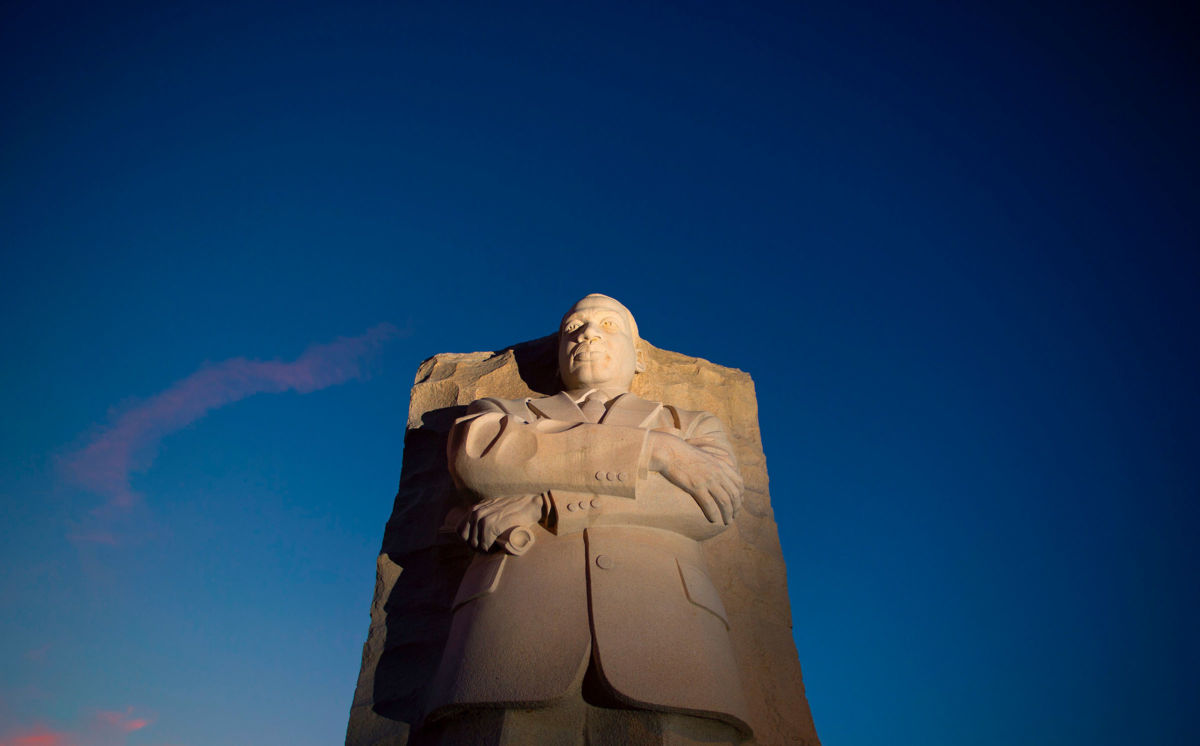Coretta Scott King testified before Congress twice, in 1979 and 1982, to argue for the importance of instituting a national holiday in honor of her late husband, Martin Luther King Jr.
Pushback to the proposed holiday included conservative Democrat Congressman Larry McDonald’s assertion that a recognized holiday centered around King — a figure who both engaged in civil disobedience and openly criticized the government — would encourage young people to foster “contempt for the law.”
Contrary to this conservative (and racist) fear, MLK Day has since become a day centered around a watered-down or “sanitized” telling of the life of King and the movement he was a part of. What McDonald seemed to underestimate was the ability of people in power to control popular understandings of history and paint the past as something that supports the conditions of the present.
Today, many young people will be taught a warped version of history — punctuated by King’s inspiring speeches — that overlooks the hard work of organizers by suggesting that the Montgomery bus boycott organically evolved in response to Rosa Parks singlehandedly refusing to give up her seat.
With a neo-fascist president-elect taking office in just four days, these ahistorical narratives are dangerous. They work to mislead the public about the tools it takes to make change, the honest historical context in which we exist and the true political legacies of our icons and our ancestors. Although King’s persona and charismatic calls to action held a strategic place in galvanizing people, it was not charisma that turned out thousands of people to march to the Edmund Pettus Bridge in Selma, Alabama, in 1965; it was organizing. And it was not a spontaneous decision by a tired woman on the bus that led to the most massive transportation boycott of the century; the Montgomery bus boycott was a result of coordinated organizing efforts, and Parks’ refusal was a strategic direct action.
MLK Day narratives about the Black freedom movement of the 1960s too often allow King’s shadow to eclipse acknowledgment of the contributions of the many organizers and strategists who made the movement — including Ella Baker and the students who formed the Student Nonviolent Coordinating Committee (SNCC); Fannie Lou Hamer and the countless other former sharecroppers who joined the movement; Diane Nash and the coordinators of the 1961 Freedom Rides; Pauli Murray and those who challenged the movement to interrogate gender and sexuality; Kwame Ture and others who went on to lead the shift away from nonviolence and toward a Black power framework. As Baker once said, “Martin didn’t make the movement, the movement made Martin.” The erasure of these essential movers and shakers is both a result of the limitations of a leadership model that rests on figureheads and singular icons and the intentional whitewashing of King and of history.
James Baldwin once wrote that “the great force of history comes from the fact that we carry it within us, are unconsciously controlled by it in many ways, and history is literally present in all that we do.” These words emphasize what is at stake for us in trying to make sense of history. Taking history as seriously as Baldwin suggests we should, organizers of my generation have participated in efforts to reclaim MLK Day. These attempts to “#ReclaimMLK” aim to de-sanitize the stories we’ve been told in order to uncover radical impulses and organizing strategies that may better equip us to navigate the intense present.
The transition of power we are about to witness marks not only a shift in the political climate, but also a radical transformation of power structures and, likely, a new political normal. For this reason, the moment we are in demands that we pay close attention to history. Our lives depend on it.
We must understand the fight for the right to vote as one part of a movement that understood the dehumanization inherent in the denial of Black people’s right to vote, and how that dehumanization was a part of enforcing the hierarchy necessary in order to maintain the system of racial capitalism.
In 1967, King named racism, capitalism and militarism as the “three evils of society.” In this moment, we have a similar responsibility to name and connect how larger structures are behind the impacts people feel and will increasingly feel in their daily lives. Pursuing incremental reforms rather than structural transformations is no longer going to be a feasible strategy, nor has it ever been enough.
As we see mass mobilization happening on the extreme right, it is necessary that we work toward mass political engagement of the left, of poor people, of Black people, of immigrants, of Muslims, of Indigenous people, of queer people, of trans people. History will show us that in times like these, a radical vision is exactly what people need. In fact, it is the only thing that will serve as a hopeful North Star leading us toward what is possible.
Media that fights fascism
Truthout is funded almost entirely by readers — that’s why we can speak truth to power and cut against the mainstream narrative. But independent journalists at Truthout face mounting political repression under Trump.
We rely on your support to survive McCarthyist censorship. Please make a tax-deductible one-time or monthly donation.
